Plant these winter fruits in your garden this year.
Below is our list of the 7 best fruits to grow in the winter garden.
Home grow fruit in winter almost sounds ridiculous, but these berries and fruits will make any winter gardener proud, happy and healthy! This article shares some of the best trees and berries to grow for winter fruits in the South African climate.
Many gardeners know citrus as winter fruits, they come into and stay in season throughout the cooler winter months. Clementines Grapefruits, lemons, oranges and various citrus fruits are always a treat in the winter garden.
What some might not know is there are a number other terrific winter fruits for the cold garden. Some of the best winter fruits and berries are Cherries, Persimmons, Pomegranates, Crabapples, Raspberries and Strawberries.
Try these fun winter fruits in your garden this season.
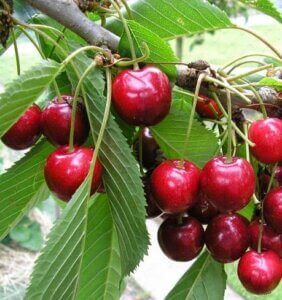
Cherries
The best time to plant cherry trees is in the late autumn or early spring, but as many others they will tolerate being planted any time in the year. Space them well apart in a hole twice the size of the planting bag. Make sure your soil is well-drained and fertilise with compost and bonemeal. Prune existing Cherrie trees in the winter to ensure a steady flush of flowers in the spring and a bountiful summer harvest.
Raspberries and Strawberries
Raspberries and Strawberries are terrific additions to a winter garden as they tolerate frost. Strawberry plants tolerate light frosts during winter; however, flowers are easily damaged by heavy frosts so make sure you protect them if you expecting sever winter conditions. Simply mulch your plants well with a thick layer of straw around the plants during winter.
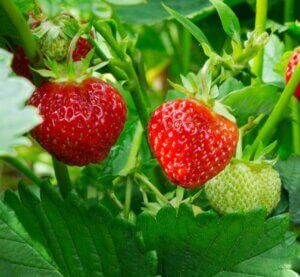
Tips when growing strawberries:
Strawberry plants will produce less and less fruit as they grow older so remember to replace your plants every few years. Strawberries are also easily propagated from plantlets that form along their runners or even grow them from seed harvested right off the fruit.

Persimmons
These are fascinating orange fruits they are packed with essential nutrients and antioxidants and are absolutely delicious. The do well in cold winter conditions and will be an absolute delight in any winter fruit garden. These stunning orange golden fruit trees will tolerate temperatures up to -3 degrees Celsius making them perfect for the cool season.
Pomegranates
An absolute winner as juice or a delightful treat picked from the plant and enjoyed right in the garden. Pomegranates are a must have fruit in any winter garden, they perform well in the cold weather and are usually stacked with fruit when they bear. They tossing pomegranate seeds with greens like endives, kale, and spinach all of which are terrific in the winter garden. Mix roasted beets, sliced pears, toasted almonds into your salad and enjoy with a citrus vinaigrette.
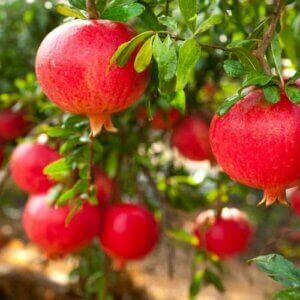
Grow for life – Health tip:
Pomegranates are not only delicious but they are stacked with Antioxidants and Vitamin C. so these winter fruits are worth your while even if only grown to juice the seeds for a healthy treat.
Clementines
Clementines ripen in the middle of winter, which makes them perfect for an interesting flavourful snack in the cold winter garden. For a delicious treat Try dipping Clementines in chocolate. These winter delights are equally delicious as juice and make the perfect smoothie base.
Grapefruits
Similar to many in the citrus family grapefruits often produce heavily in winter. They are typically easy strong growers that require minimal maintenance and care. Grapefruits are an interesting winter fruit and make a fun addition to any South African winter garden.
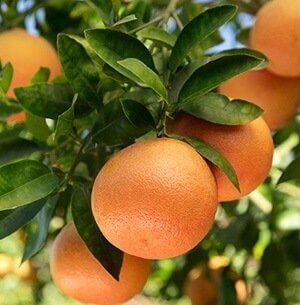
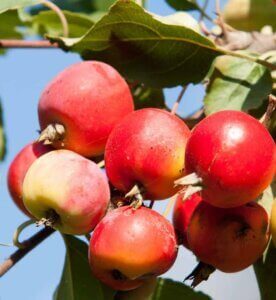
Crabapples
Besides the stunning flower display they boast in spring Crabapples are a great fruit for winter gardening. They perform best if planted or transplanted in spring, but will tolerate planting from containers at any time. They will happily take the cold winter temperatures of South Africa and are always a fun treat to show the kids in the garden.
Cultivating Winter-Bearing Berries
Raspberries and Strawberries in Your Winter Garden
Berries can be a delightful addition to the winter garden in South Africa. Raspberries and strawberries not only add a splash of color but also bring a burst of flavor to the colder months. For successful growth:
- Soil Preparation: Ensure rich, well-drained soil, ideally amended with compost or well-rotted manure. This provides the necessary nutrients and enhances the soil structure, promoting healthy root development.
- Mulching: Apply a thick layer of organic mulch, like straw or pine needles, around the base of your berry plants. This helps to retain moisture, suppress weeds, and provide insulation against fluctuating temperatures.
- Protection from Birds: Birds can be particularly attracted to winter berries. Netting or bird scarers can be effective in keeping your berries for your enjoyment rather than becoming a feast for the local wildlife.
- Winter Pruning: For raspberries, cut back the canes that have already fruited to ground level after harvesting. This encourages new growth and more fruitful canes for the following season.
Adding to these tips, remember that maintaining consistent care throughout the winter months is key to ensuring a bountiful harvest of these delightful fruits.
Growing Exotic Winter Fruits
Persimmons and Pomegranates in Cold Climates
In addition to common winter fruits, persimmons and pomegranates offer unique flavors and textures to the winter garden in South Africa. These fruits not only survive but thrive in cooler temperatures.
- Sunlight Exposure: These trees need full sun for the majority of the day. This helps in the development of fruits and maintains the health of the tree.
- Frost Protection: While mature trees can handle some frost, younger trees are more susceptible. Protect them with burlap wraps or move container-grown trees to a sheltered location.
- Pruning: Regular pruning helps in shaping the tree and removing any dead or crossing branches. This also improves air circulation, reducing the risk of fungal diseases.
- Watering Needs: Water these trees deeply but infrequently, ensuring that the soil remains moist but not waterlogged. Overwatering in winter can lead to root rot, while under-watering can stress the tree.
Growing these exotic fruits can add an interesting element to your winter garden, providing both aesthetic beauty and delicious, nutritious produce.
General Winter Fruit Gardening Tips
Keeping Your Garden Productive in the Cold
- Understand Dormancy: Many fruit trees enter a dormant state in winter. This natural process is crucial for their health and subsequent fruiting. It’s a time for the trees to rest and conserve energy for the upcoming growing season.
- Optimal Planting Time: Winter can be the ideal time to plant new fruit trees and berries. The cooler temperatures and winter rains help the plants to establish their root systems.
- Pruning Essentials: Winter is an excellent time for pruning most fruit trees. This helps to shape the tree, remove dead or diseased wood, and encourage healthy growth and fruiting in the spring.
- Frost Protection: Protect sensitive plants from frost damage. Techniques include covering with frost cloth, using mulch to protect the roots, or even stringing Christmas lights around the tree for warmth.
- Monitoring Water Needs: While overwatering can be a concern, it’s important to ensure your plants receive enough moisture, especially in areas with dry winters.
- Pest and Disease Management: Winter is a good time to check for and address any pest and disease issues. Dormant oil sprays can help control overwintering pests and diseases.
- Soil Health: Consider testing and amending your soil. Adding organic matter or specific nutrients as needed can prepare your garden for vigorous spring growth.
- Mulching: Apply a layer of organic mulch around the base of your trees and plants. This helps to retain moisture, moderate soil temperature, and add nutrients as it breaks down.
- Wildlife Protection: In winter, hungry animals might be tempted by your fruit trees. Use guards or fencing to protect young trees from deer, rabbits, or other wildlife.
- Planning for Spring: Use the quieter winter months to plan for spring. Consider which new varieties you might want to add, any changes in garden layout, and ordering seeds or plants early.
Q&A for Growing Fruits in Winter South Africa
Popular questions on the topic of growing fruits in winter South Africa
What Fruit to Plant in Winter in South Africa?
In South Africa, winter is a great time to plant a variety of fruits, particularly those that are tolerant to cooler temperatures. These include citrus fruits like oranges, lemons, and grapefruits, as well as more exotic options like persimmons and pomegranates. Berries such as strawberries and raspberries can also be planted during this time, as they are hardy and can withstand cooler weather.
What Fruit Grows in the Winter?
Fruits that typically grow well during the winter months include citrus fruits like oranges, lemons, and grapefruits. In addition, some varieties of apples and pears are also winter growers. Berries like strawberries and raspberries can continue to bear fruit in milder winter climates or if provided with some protection from extreme cold.
What are the Best Winter Fruits?
The best winter fruits are those that can withstand the cold and still produce a good yield. This includes citrus fruits such as oranges, lemons, and grapefruits, which are known for their winter hardiness and productivity. Persimmons and pomegranates are also excellent choices for winter fruits due to their ability to tolerate cooler temperatures and their nutrient-rich, flavorful fruits.
What Fruits are in Season in South Africa?
In South Africa, winter season fruits primarily include various citrus fruits like oranges, lemons, naartjies (a type of tangerine), and grapefruits. Other seasonal fruits during this period are avocados, kiwi fruits, and papayas. These fruits are not only delicious but also high in vitamins and nutrients, making them ideal for consumption during the cooler months.
What is the Easiest Fruit to Grow in Winter?
One of the easiest fruits to grow in winter, especially in South Africa, is the lemon tree. Lemon trees are relatively hardy, require minimal maintenance, and can produce fruits throughout the year, including winter. They are adaptable to various soil types and can be grown in the ground or in containers, making them suitable for different gardening spaces.
What Fruits and Vegetables Can You Plant in Winter in South Africa?
During winter in South Africa, you can plant fruits like oranges, lemons, and grapefruits. For vegetables, options include leafy greens like spinach and kale, root vegetables like carrots and beetroot, and cruciferous vegetables like broccoli and cauliflower. These vegetables are not only suited for cooler temperatures but also enrich the garden with a variety of nutrients and flavors.
Which Winter Fruits Boost Immunity?
Citrus fruits, such as oranges, lemons, and grapefruits, are excellent for boosting immunity during winter. They are rich in Vitamin C, a potent antioxidant that helps strengthen the immune system. Pomegranates are another great choice, known for their high levels of vitamins, minerals, and antioxidants. Consuming these fruits can provide a natural defense against common winter ailments.















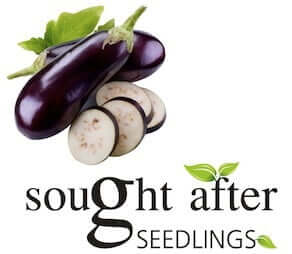


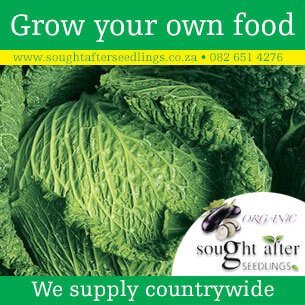



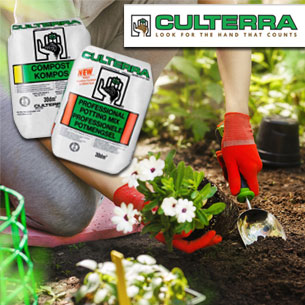








Like to know & learn about manure for different kind of fruit trees